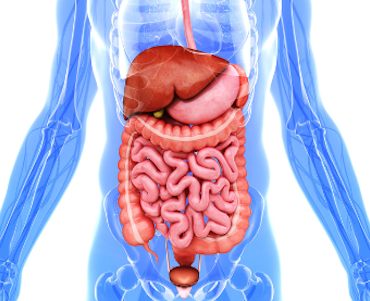
Dr. Maxwell Nartey
Professor of Symptometric Science, American School of Symptometry, NFP
World Center for Cell Education and Scientific Enlightenment
Many people say they are not constipated, but they do admit privately that they use enemas twice or three times a week or every other day to relieve themselves. Others make an appointment for colon irrigation twice a week with an herbalist. Is using an enema or doing colon irrigation with purgatives a sign of colon inertia (lack of motion)? Yes, it is.
Some individuals cannot relieve themselves daily or every other day because their large intestine cannot undergo peristalsis (wavelike movement). The main reason peristalsis cannot occur is that the large intestine has become too thick or the person has Hirschsprung disease.
Hirschsprung disease
In Hirschsprung disease, the motor neurons that cause contraction and relaxation for peristalsis are dead. They are dead because the leakage channels in their plasma membranes shut down.
To produce electricity for neuronal activities, sodium, and potassium must move superfast in and out of the neurons’ leakage channels at least 60 times per minute, just like a normal heartbeat. Here is the problem.
Some pregnant women don’t cook with salt to “control” their blood pressure on the advice of their physician. Here is what will happen to their baby and why.
Their baby will be born with nerve problems. They will become susceptible to frequent nervous breakdowns and temper tantrums. They will be prone to anger and severe or chronic constipation because their bowel can’t move. They will not even feel that feces is in their large intestine because their motor neurons are dead.
Then, their colons will begin to thicken, causing stool to become impacted. Since they cannot move their bowel, a medical device called a fecal collector must be used to extract feces twice or thrice a week in a facility. This is like going for dialysis.
The hard truth about hypertension
Here is the hard truth about hypertension that people are unaware of: Hypertension is caused by the heart’s inability to produce ANP (atrial natriuretic peptide) and the kidneys’ inability to produce renin, which keeps elastin in the arteries. Elastin is the muscle protein that keeps our arteries flexible, preventing hypertension.
Therefore, a person whose blood pressure is elevated after eating food cooked with good salt has an enzyme problem. They cannot produce the enzyme called salt reductase.
Every human being needs good salt in their body. Why? Salt, oxygen, heat, and water are our cells’ four primary resources for functioning. Salt provides the cations to run all our nervous systems. The positive electrical charge from potassium combines with the cations from sodium to produce electricity for the motor neurons that cause peristalsis.
Many pregnant women are unaware of what it takes to keep electricity in their baby’s large intestine before and after birth. This article is designed to correct the misinformation about salt causing hypertension and the miseducation that goes with it. Now, back to the physiology of the large intestine.
Physiology of the large intestine
The large intestine consists of four layers:
- The innermost layer, called the mucosa
- The second layer moving outwardly, called the submucosa
- The third layer moving outwardly, called the muscular layer. It consists of smooth muscles with nerves that run the autonomic nervous system and
- The outward layer called serosa.
Our colon’s muscles support most colonic activities, and nerves are embedded in them. The muscle fibers’ cells must divide to replace the old cells, ensuring that the muscle layer remains strong and elastic throughout the year. Failure of the muscle cells to divide will spell trouble.
For example, seeing mucus in the stool even once is a very bad sign. It confirms that the mucosa and submucosa are disintegrating, and things will worsen if this disintegration is not stopped.
Colon thickness
The normal colon wall is about 5 millimeters thick. Unfortunately, some people have colons 15 to 20 millimeters thick, making them too thick and cumbersome for neurons to create electrical waves for peristalsis. Why do a person’s colons become so thick? In addition to dead motor neurons, unremoved garbage is another reason for colon thickness.
Garbage is stuck in the haustral segments of the large intestine, as accumulated garbage increases the thickness by about 1 millimeter each year. By age 35, the colon is already too thick for peristalsis, causing chronic constipation due to lack of peristalsis.
The large intestine becomes inoperable by age 70. Some individuals have had their large intestine inoperable since age 33.
As the colons thicken, other anomalies start occurring in the colons. These anomalies are:
- Colitis. In colitis, the colons are inflamed because cortisol cannot circulate to the large intestine. The ripple effect of inflammation is stomach pain before, during, or after eating. Colitis is also called IBD (inflammatory bowel disease). Some individuals had colitis since they were 17.
- Ulcerative colitis. In ulcerative colitis, the colons are inflamed and have ulcers. The cells cannot divide, leaving the old and tattered cells in place. Eventually, blood will be in the stool as feces scrape the ulcers and make them bigger. Calling ulcerative colitis Crohn’s disease does not make a difference; consuming turmeric to assuage the discomfort will not make a difference either.
- Diverticulosis. In diverticulosis, pockets develop in the colon’s mucosa due to the muscle layer’s weakness. The muscles are weak because the muscle cells cannot divide to produce fresh muscle proteins, especially connectin, fibrillin, and elastin.
- Diverticulitis. In diverticulitis, the pockets have become infected and inflamed. Hence, there is a high frequency of bowel pain, stomach pain, and painful colic. Some people refuse to eat, causing drastic weight loss associated with anorexia nervosa. Some individuals have diverticulitis, diverticulosis, and colitis. As a result, they become picky eaters.
- Polyps. Polyps are common in individuals who eat oats. Why? Oats contain beta-glucans, which do not dissolve. Because they do not dissolve, the tissues absorb them and turn them into weird structures called polyps in the lungs, colons, ears, noses, large intestine, etc. Polyps occupy space and are obstructive. They can cause stool to get stuck in the sigmoid.
- Tumors. Tumors occur only where the cell’s microtubules and centrioles are weak. Tumorigens use this weakness to deregulate cell activities and rhythm, causing a tumor. The tumor can be surgically removed but will regrow because the centrioles and microtubules are still weak. There are tumorigens in garlic and onions.
- Cancer. Colon cancer or colorectal cancer occurs in colon cells where carcinogens eliminate cysteine from the double helix and block its reintegration. Blocking the reintegration of cysteine with the triplet code ACA automatically eliminates oxygen from the cells, leaving DNA in disrepair and causing a mutation. How does a person know they have cancer? Only a biopsy can make such a revelation. The nucleus of a cancer cell is larger and darker than the nucleus of a normal cell. It is darker because the removal of cysteine causes many damaged DNAs to form a cluster. Cancer is cancer. Therefore, there is nothing special about leukemia, breast cancer, colon cancer, pancreatic cancer, carcinoma, basal cell carcinoma, multiple myeloma, etc.
All these anomalies would not have happened if the person had been 1) using particulates to allow their colon cells to self-cleanse, self-protect, self-regulate, and self-perpetuate and 2) cooking, eating, and living scientifically.
Hence, enemas have never been a solution to colon problems. They have been part of the problem, making the large intestine thicker over time.
If the large intestine is not healthy, the mind will also not be healthy, causing bowel problems to remain on the person’s mind most of the time. Passing stinky gas is only one of the colon’s minor issues. Things will get worse as the person ages.
Since health is measured by how a person feels metabolically, emotionally, mentally, physically, etc., a person with colon problems should under no circumstances think they are healthy. Eliminating black stool, bloody stool, stool with undigested food particles, or rice water stool, in addition to occasional diarrhea, would be extremely depressing, to say the least, for a person with colon problems.
Can dead motor neurons regenerate?
A dead neuron is not a dead person. Therefore, the answer is yes: dead motor or sensory neurons can regenerate.
In Symptometry, a neuron is not dead until the person dies, shutting down the autonomic nervous system. If oxygenated blood full of sodium and potassium can flow to neurons in suspended animation, the neurons will be back.
In Hirschsprung disease, the motor neurons are dead. However, if four conditions are met, the neurons will be full of life again. These four conditions are: 1) plaque in the capillaries is ionized, 2) the splanchnic and vascular nerves in the capillaries are repaired, 3) the leakage channels are ionized and reopened, and 4) oxygenated blood full of sodium and potassium flows to the large intestine. After fulfilling these prerequisites, the person will start to feel the pressure of feces in their large intestine, and the urge to move their bowel will begin.
Therefore, if they can move their bowel once a week, then twice a week, they have made significant progress, compared to no bowel movement in weeks. Here is my next question.
Is the person ready and willing to cook, eat, and live scientifically, and also take specific particulates to drive additional electrical energy into their large intestine? If their answer is yes, light will be at the end of their tunnel.
In Symptometry, the disease is not the problem. The problem is the person who has the disease. Since things have not been working for them, are they now willing to move into a different paradigm to begin to see some changes, or do they want to stay with chaotic cooking, eating, and living and continue to suffer? They must make a choice. This is what life is all about.
The world never had Symptometry. Now, Symptometry is here.
© Copyright 2024, The American School of Symptometry, NFP. No part of this publication may be reproduced or transmitted in any form or by any means, electronic or mechanical, including photocopying, recording, or by any information storage and retrieval system without the written permission of The American School of Symptometry, NFP. Library of Congress copyright number Txu 1-621-370, Washington D.C.


 Previous Post
Previous Post Next Post
Next Post